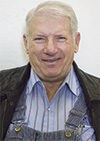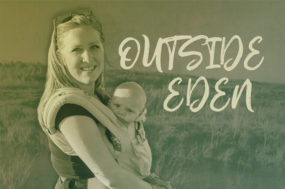The Banty rooster attitude of his was something else. He assumed that small was fast and that large was clumsy. He being the smallest member of the crew, and I, by far, the largest, well, we had rather an interesting running dialogue about the benefits of our comparative sizes.
His assumption of big equaling clumsy soon faded, at least as far as I was concerned. He allowed that if he and I ever got into a real fight, he would be able to do okay until I got ahold of him. But he had no intention of letting that happen, as he had learned that his feet and legs could keep his face from getting messed up.
He assumed that should I ever get hold of him in anger that I’d just wring his neck. He had no idea how often I’d been tempted to do just that. The rest of the crew agreed that with “Red” along, we didn’t need the radio. The steady noise coming from the Banty Rooster was very entertaining.
One day, we had a chain of events happen that made us appreciate the good days. The plan had been to unload the previous days’ loads, then go back and re-load, and get back in time to unload those also.
At the time, we had about three trucks running together. On this day, each truck and its equipment had a turn at causing a delay. This left us at the stack to load late in the day.
As the last of the elevator engines gave up the fight and acted like it was going to actually run long enough to load its truck, “Red” made a profound comment.
“We’re just about to get darked on.” He was right. Before we were anywhere near loaded, it was good and dark. Needless to say, the next morning left us looking at the previous day’s work again.
In the town of Middleton, Idaho was an excellent Mexican food establishment operated by Marilyn Pannell, despite the help of her husband Glenn. “Red” was with me one day when we stopped at the Pannell’s establishment for lunch. Marilyn had about four lunch specials, all priced at a dollar.
Glenn was waiting tables that day. When he asked what I’d like, I replied that I would like the lunch specials. He asked, “Which one?” and I answered, “Yes.” When he finally understood that I wanted one of each of the dollar specials, “Red” asked for the same. I sat and ate my lunch.
“Red” left the place with over half of his lunch in his pockets. But “Red” had the last laugh that day. We went north to unload, and ended up playing in the snow with tire chains and big tractors. When we finally had the hay unloaded and were headed back, I was hungry. “Red” sat in the passenger chair of Old Yellow and went on and on about how good the cold burritos were.
A fellow in the Mountain Home, Idaho area tried a new venture in double-cropping. After harvesting a grain crop, he disked the stubble and planted a mixture of Austrian peas and oats. It was a beautiful crop. Grew like the dickens.
It was thicker than hair on a dog’s back and waist-high on me, and armpit-high on “Red”. The owner had to let it grow for just a few more days; he was sure of getting five or six ton to the acre. He finally cut it towards the end of October.
The windrows were almost as tall as the swather. About Thanksgiving time, he gave up on it ever curing out, and baled it. There had been a few snowflakes in it before it was baled, which didn’t help it to dry, either.
The moisture was between 25 and 35 percent. Counting the water in the bales, he got over his six ton to the acre. He ended up stacking it five or six layers high with the harrowbed. Any more, and it just collapsed into a pile; nice, soggy, hundred-and-thirty-pound bales.
We loaded a layer shy of a standard load, and still ended up about ten ton overweight. The cattle loved it. One load on my truck made it to the yard with the load still perfectly straight.
We came back in the morning and it had settled to one side so bad that we had to unload it onto pick-ups and trailers to deliver it. When we spoke sharply to the grower, he just shrugged, and said, “Where else can you buy baled silage? FG










